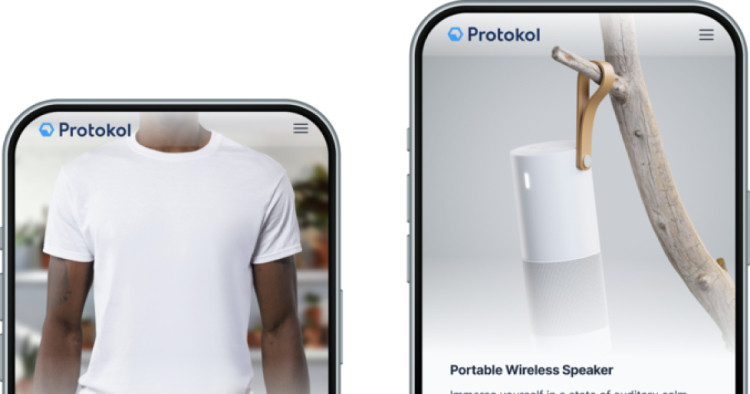The EU’s ESPR and It's Impact on the Electronics Industry
Insights | 12-05-2025 | By Mathew Ekholm

Key Takeaways:
- E-waste is rising fast — Electronics are among the fastest-growing sources of global waste, with 62 million tonnes generated annually and rising.
- Digital Product Passports (DPPs) become mandatory — Under the EU's ESPR regulation, all products sold in the EU must include a digital product passport, regardless of where they are manufactured.
- The electronics industry is a priority sector — ICT is among the first sectors targeted for compliance, with mandates beginning as soon as 2027.
- Firms can act now to get ahead — Early steps like assigning a DPP lead, mapping product data, and piloting compliance strategies can ease future rollout.
As we reflect on the first few months of 2025, it’s clear that technology has become central to our everyday existence. 98% of the adult population now owns a mobile phone, with many upgrading every few years to own the latest model. This growing demand for the latest item is leading to a huge spike in waste, a crisis particularly prevalent in the electronics industry. In fact, e-waste is one of the fastest-growing solid waste streams in the world.
As this growing waste stream continues to put pressure on the environment, the European Union has taken note and implemented a variety of measures to strengthen a circular economy and prioritise sustainable business practices. In particular, the EU’s Ecodesign for Products Regulation (ESPR) is set to improve the practices and factors that contribute to sustainability and stands as part of the EU’s greater Circular Economy Action Plan (CEAP) framework. The ESPR will play a core role in developing a strong, well-functioning single market for sustainable products in the EU and will focus on making products use energy and resources more efficiently, lasting longer, while being easier to repair or recycle.
As part of the legislation - which came into force last summer - the ESPR is mandating Digital Product Passports (DPPs) for all businesses (EU-based or not) that sell in the EU marketplace, regardless of where their product was manufactured. The European Commission has noted that industries such as ICT and textile are to be prioritised when it comes to compliance - with some needing to satisfy the mandate as soon as 2027.
DPP'S and Their Role in Tackling Global Waste
In simple terms, DPPs act as a digital record of a product, containing data that relates to the product’s life cycle and credentials. This could include information relating to the materials used in an item's production, its recyclability attributes, and much more.
DPPs have been chosen by the EU as an official helping hand to improve the authenticity, sustainability, and traceability of products circulating in the EU marketplace while aiming to foster more sustainable business practices due to the insight they provide. End-users will be able to access an item’s DPP by using a mobile device to scan the barcode or QR code that is affixed to the item. Here, end users have the potential to gain insight into key sustainability information such as the carbon footprint of the item’s manufacturing process, details concerning its sustainable end-of-life disposal, or even broader information such as warranty details,
The end-of-life disposal guidance that DPPs can provide will be vital when we consider the waste problem the electronics industry is known for - hence the EU regarding it as a priority sector for compliance. 62 million tonnes of e-waste is currently generated globally with only 22.3% documented as formally collected and recycled, making the responsible disposal of items in the electronics sector a crucial issue that firms must tackle if they want to stand as sustainable brands of the future.
Adding to this urgency is the fact that hazardous materials (such as lead or mercury) are often found in electronic products. This increases the importance of prioritising correct disposal to ensure toxic materials do not enter the environment or pose a risk to humans.
Alongside the insight into materials that DPPs provide, the supply chain transparency they encourage remains one of their most valuable assets. By providing all parties involved in a product with insight into its lifecycle, from start to finish, individuals are empowered to make more eco-conscious purchasing decisions and consider the sustainability of an item - enabling all parties to take action and make change when it comes to supporting a circular economy.
Becoming a More Sustainable Electronics Provider
Although the ESPR officially came into force last summer, most businesses are yet to start their DPP compliance journey since the delegated acts - which will contain specific requirements for compliance per industry - are not currently published. While these are due to be published soon, understandably, this ‘not knowing’ is causing the task to seem complex and scary for many businesses, as many simply don’t know where to start.
That being said, there are a range of steps businesses can take now to remain ahead of the curve, which will need to occur regardless of what the delegated acts outline. As a first action point, electronics firms should begin breaking down the regulation to ensure a thorough understanding of its complexities and importance. By assigning a DPP lead who is responsible for leading the business’s efforts toward compliance, firms can ensure an in-depth understanding of the EU’s sustainability movement and how this is likely to affect their company in particular.
Following this, businesses should start to consider a compliance strategy by outlining clear goals and the actions required. At this stage, it is important to be aware of the data points the regulation is likely going to ask to be recorded and begin identifying and validating data to support compliance. Here, involving relevant internal departments and collaborating with suppliers for data collection will mean firms are putting processes in motion ahead of the mandate coming into play.
Finally - and not to be overlooked - businesses should start to look for a trusted external partner who can support the implementation of DPPs ahead of the mandate coming into force. As the regulation remains complex and businesses’ needs differ depending on their size and industry, partnering with a provider who has demonstrable experience in understanding the regulation will ensure the compliance process is a lighter lift. Although building out a fully functioning, comprehensive strategy is not possible at this stage while we await the delegated acts, by implementing the above steps now, it will be easier to establish once the time comes.
Similarly, by businesses implementing a pilot project, they can assess the complexity and scale of the compliance process. This will not only allow companies to stress-test processes but will give them a better understanding of the timeline ahead of the full task. From here businesses will be in a much better place to kickstart efforts once the delegated acts are announced
A New Era: The Sustainable Electronics Industry
While many electronics brands want to be more sustainable in their outputs, the EU’s ESPR and subsequent DPP mandate could be the push businesses need to make the change and start the next chapter of their ‘eco-conscious’ journey. Although, understandably, the impending deadlines and shifts that firms are going to have to make amidst the ESPR will seem daunting, those who take action early on are more likely to reap the rewards as they have more time to consider how DPPs could benefit other business priorities.
From a broader perspective, electronics businesses should be excited by the EU’s circularity initiatives and look forward to the positive impact and outcomes of their efforts - such as contributing to a more sustainable future, validating their sustainability credentials, and optimising supply chain efficiency. Such regulations will also empower all businesses and consumers to actively make a difference in the future of our planet, something all sectors of society should be playing an active role in.

